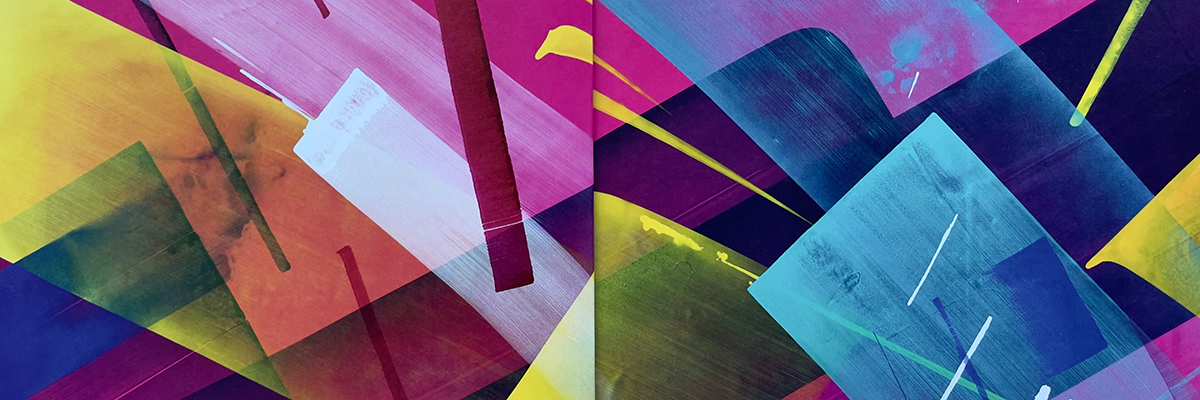You hope for it, but nothing is guaranteed. Transitioning from being an artist with a respected, lauded practice of graffiti/street art to a booming professional career on canvas is not a clearly defined route. Although many have tried, are trying right now.
What does it take, you ask? A potent mix of talent, luck, fortitude, applied effort, guts, and a willingness to change one’s approach if necessary, as necessary. In our experience, the last item proves to be the most challenging.
Yo, but Mad C is mad talented.
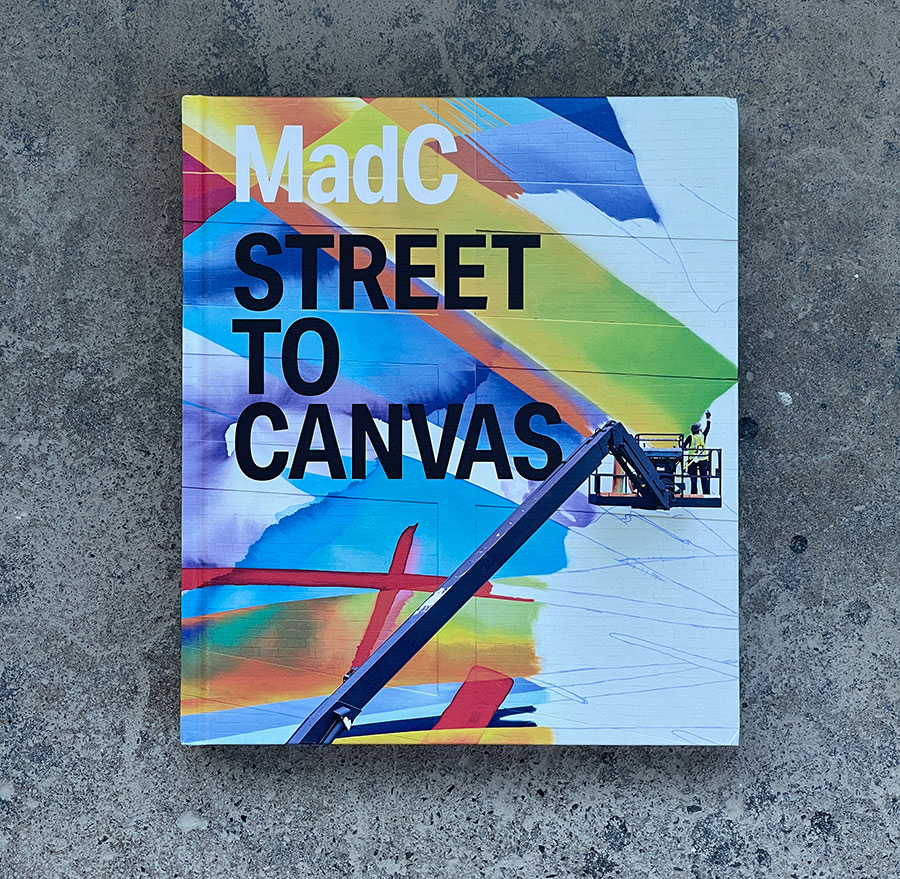
She’s made it a dedication to studying and learning the craft, fine-tuning the skills, practicing, perfecting, and persevering. All of those qualities will give you a great measure of personal satisfaction even when it doesn’t land you a big bank balance. In the case of MadC, internalizing the practices and codes of graffiti that originated with the 1960s/70s graffiti writers was core – imprinted her creative DNA forever – even though her first attempt to write was not until 1995 in Germany.
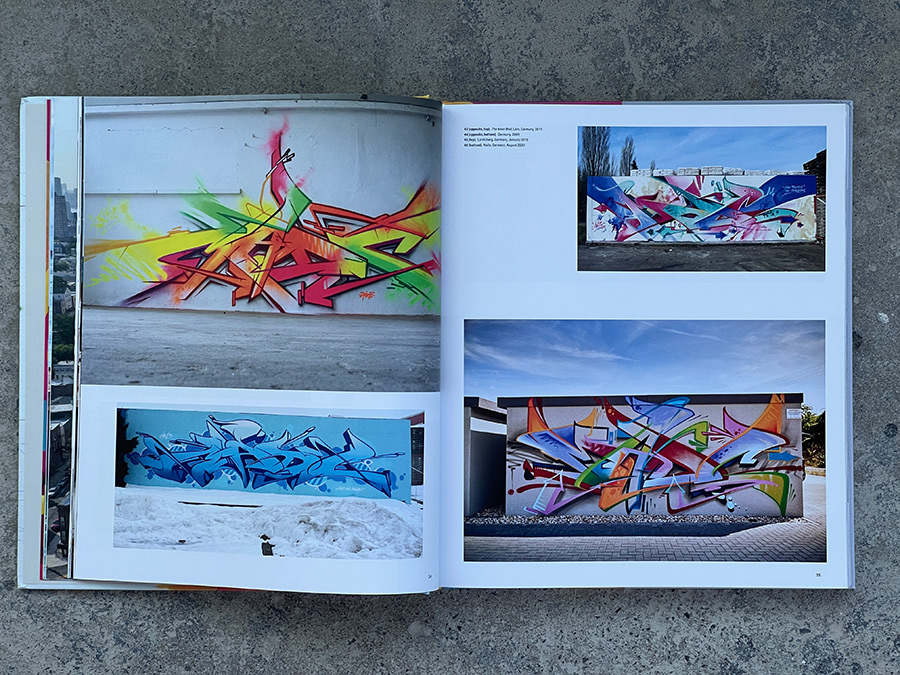
It’s all here, in “Street to Canvas” and in the introduction by author Luisa Heese, who strikes a confident balance with biographical information and aesthetic description – all placed in context with MadC’s formative culture of graffiti. You track how she moved from apprentice to mastery of the vaunted styles and family of idioms broadly defining graffiti and street art. As her methods, techniques, and visual language evolved and sharpen, a clarion voice rises above it all.
We each turn of the color-drenched plates in this hardcover tome you see a boldly deconstructed freedom with forms that eventually takes flight from the moorings. The planes and shapes begin floating above, below, and over one another, finally cavorting with and supercharging the whole. It is an ever more complex process that ultimately creates deceivingly simple-looking, balanced compositions. If you would like to see the progression of an artist’s professional practice, it’s here for you without reading a word.
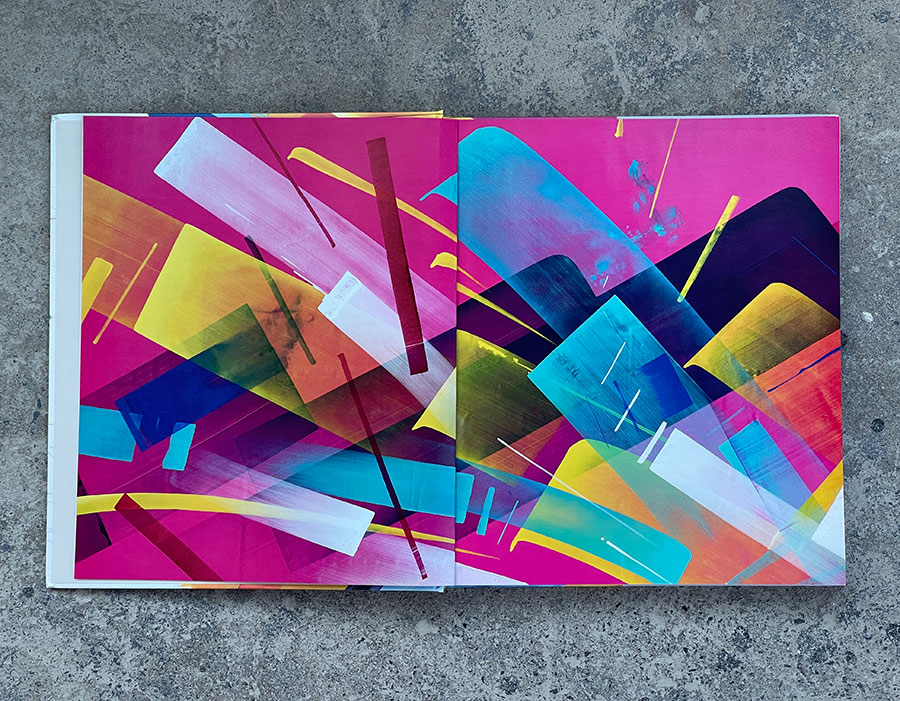
If you peruse the texts, you are rewarded with necessary, dense, and colorful prose. You learn about the utter tenacity and whole-hearted devotion that brought this woman, now only mid-career after such a prodigious run, to the gallery, to private collections and institutions.
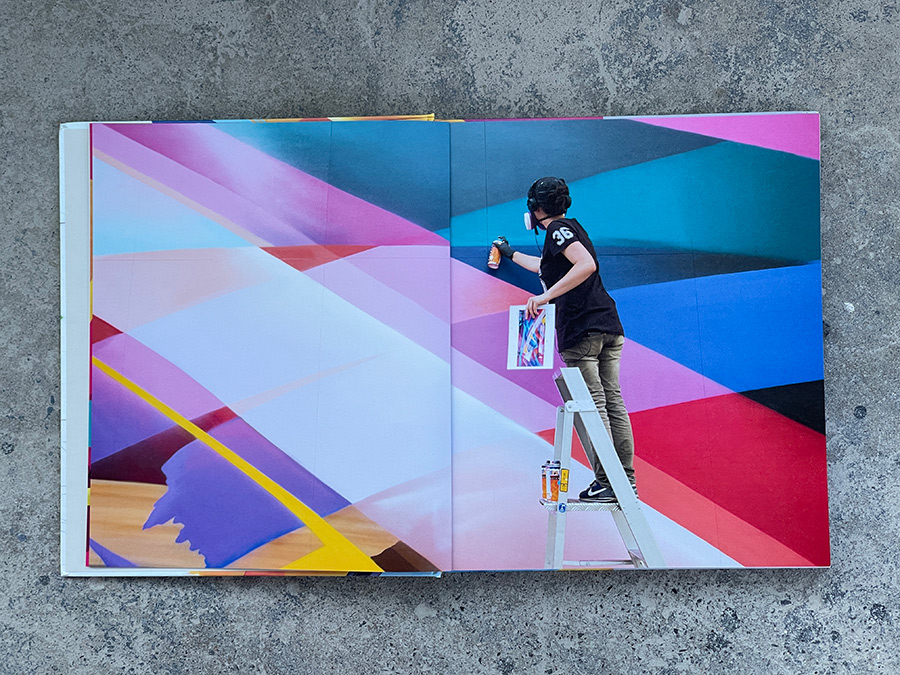
One centerpiece of the retelling are the pages devoted to the 700 Wall she painted in Peissen, Germany in 2010. Only 15 years into the game by that time, MadC knocked out the entire glossary of graffiti, even hinting toward our mural-filled present in a massive timeline. With this aerosol autobiography she presents her story with a dramatic psychological and emotional rendering; this colossus wall of dreams and nightmares. It an adventure filled projection of the inner life of an artist in this way is unusual for such a secretive subculture. Still, the strikingly illustrative story reveals the codes of the culture that formed her, told with over-shadings of personal aspiration, disappointment, fear, and grit.
The book contains her own recounting of this passion production;
“Some days I went up and down the ladder more than 500 times; fell off the ladder 4 times; counted in days, I painted more than months every day at least 10 hours; l used 1489 cans; 158
different colours; 600+ caps; 3 different kinds of caps, 100 liters primer; 140 liters exterior paint; painted at temperatures from +2C° to +38C° in the sunshine, rain, storms, day and night; painted my biggest and smallest piece so far and overall painted my name far more than 100 times on this wall.”
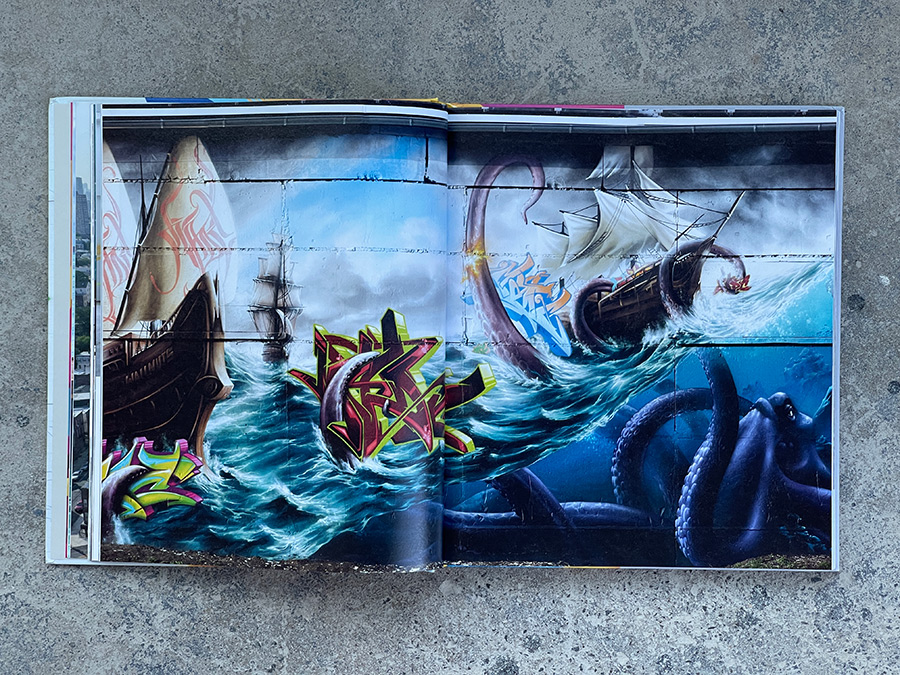
The contribution of this storytelling to the ‘scene’ informs us all. Completed more than a decade ago, the opus wall foreshadows where she travels next, personally and professionally. Seeing her massive murals completed in cities around the world since then you can appreciate her prophetic quality as well. Author Ms. Heese helps to draw it all into view often throughout “Street to Canvas”, including this time:
“There is no better way to describe the magnitude of The 700 Wall in how the worlds of graffiti, street art, and contemporary visual arts should or should not be related to one another, MadC crosses the boundaries of genres and discourses, the rules of milieus and aesthetic conventions, with charming ease to create a distinctive work that exists in between.”
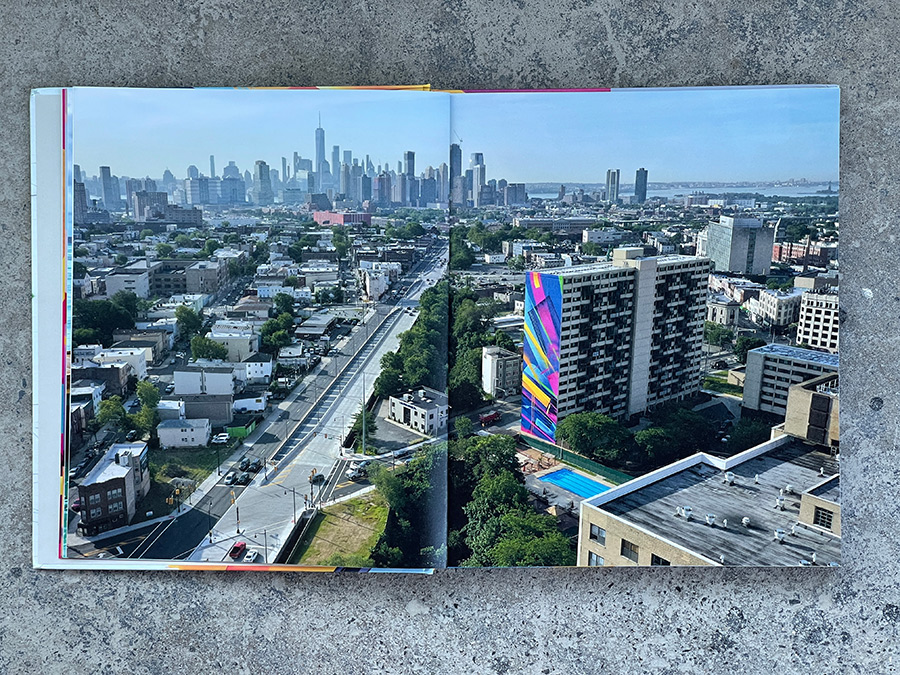
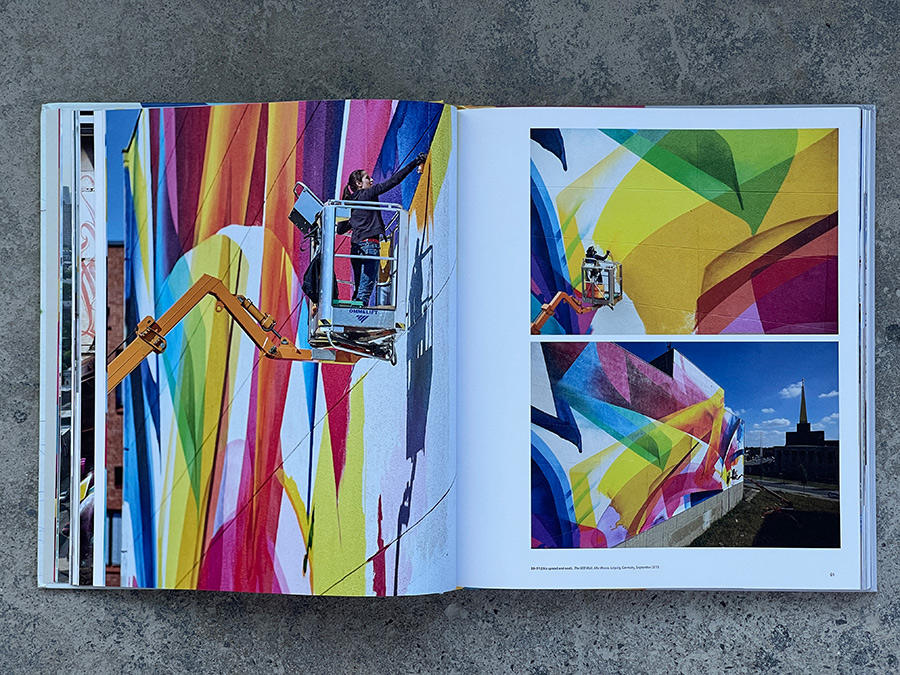

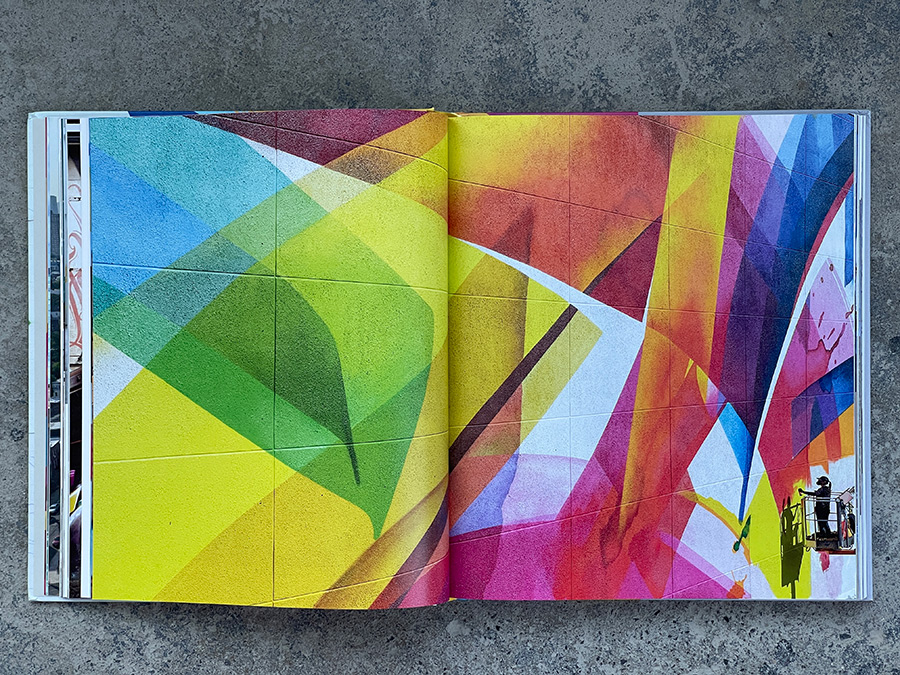
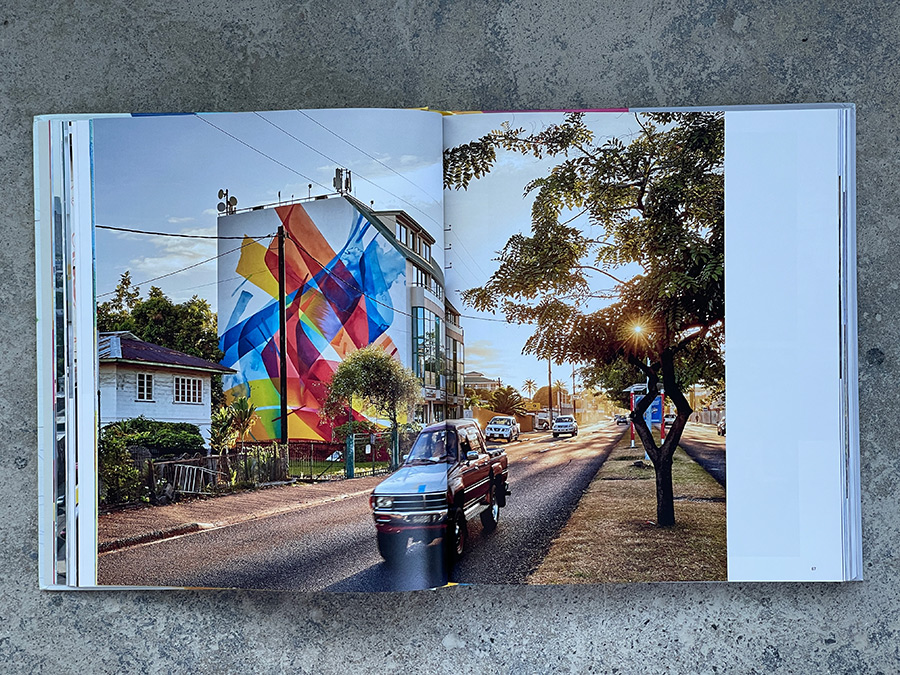
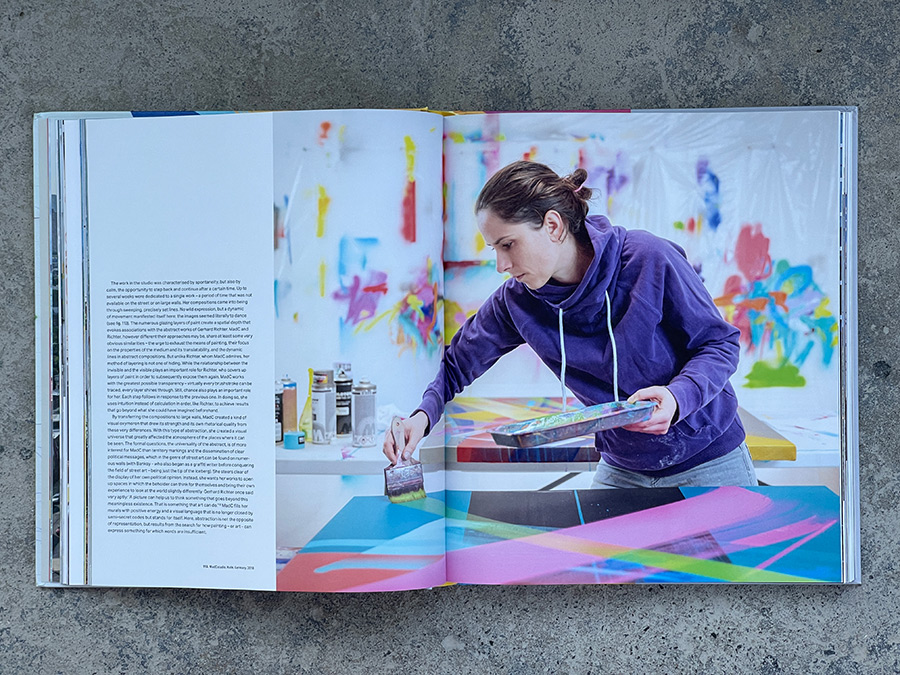
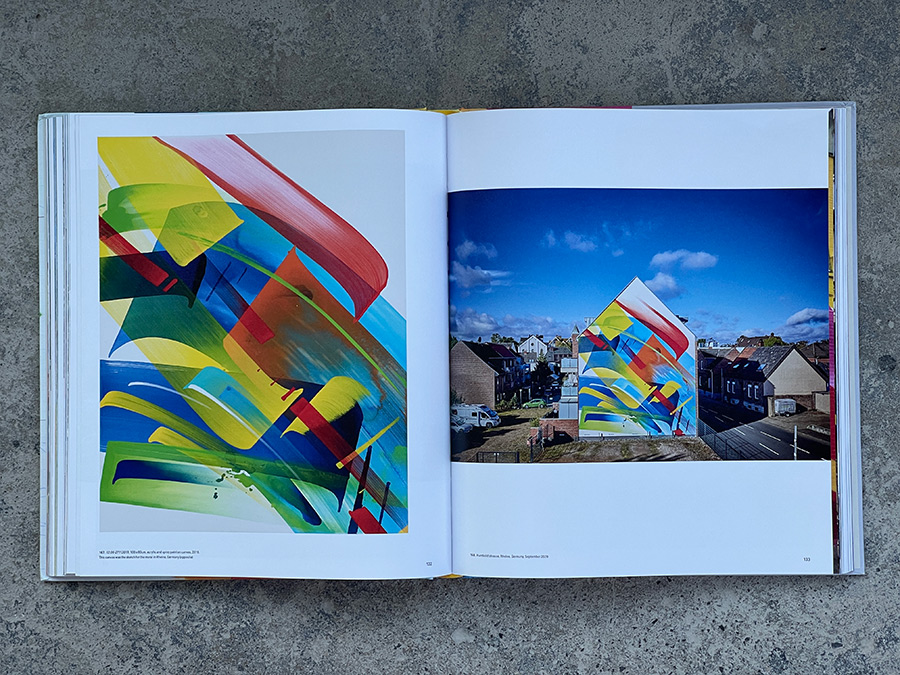
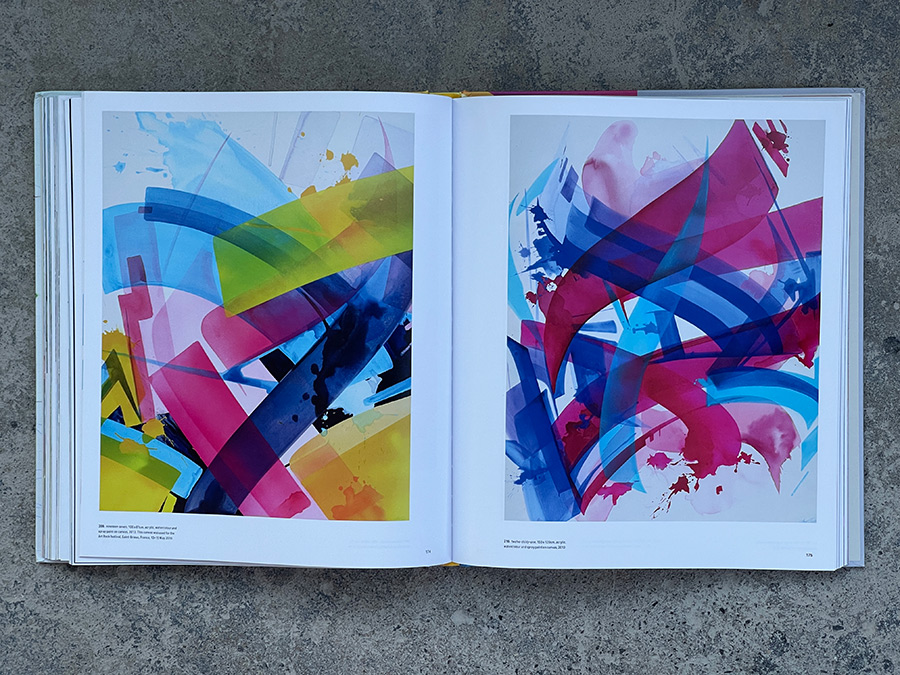
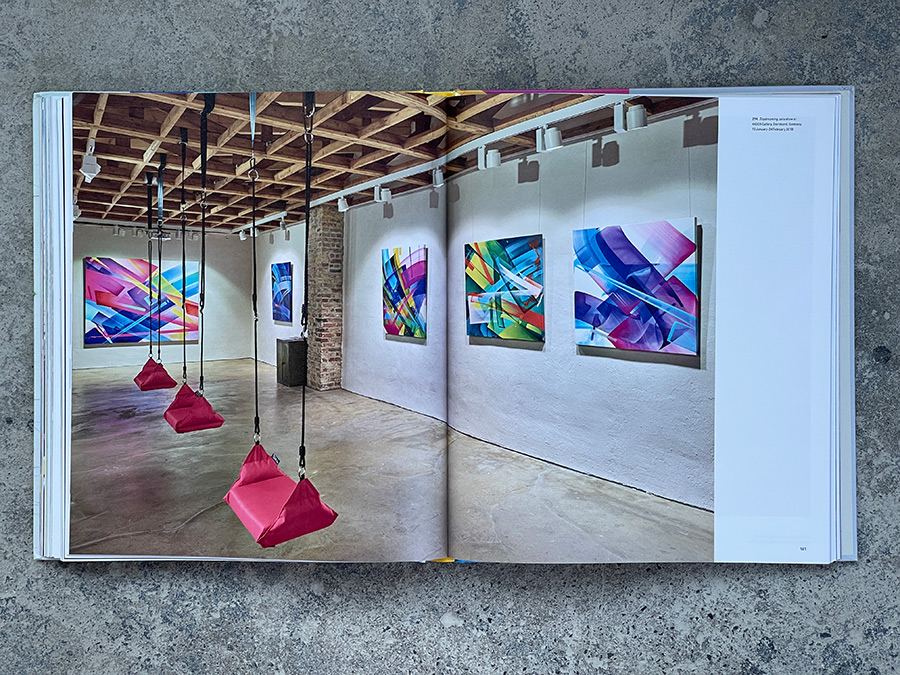
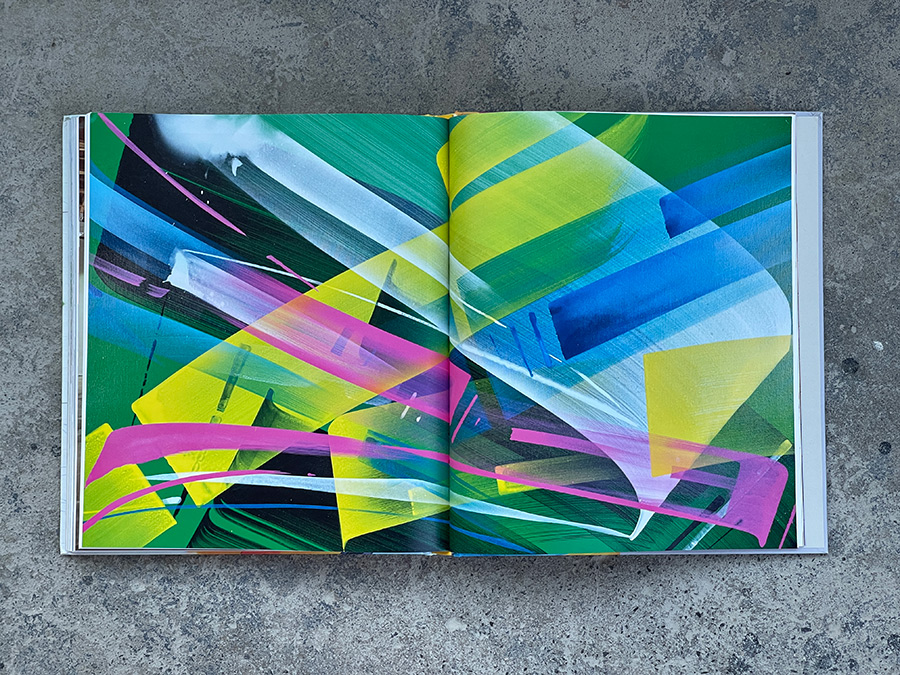
Other Articles You May Like from BSA:
By his own account Lluís Olivé has been shooting images in the city of Barcelona for about 50 years; street scenes, demonstrations, parades, architectural details, tiles, iron work, doors, doorknobs, ...
Not the first place you think of for a mural festival: Salina, Kansas. But there are new mural festivals in downtowns across the globe right now, and their longevity, among other barometers for succe...
Dude! Turn the can around! SekOne. Detail. Rexenera Festival. Third Edition. Carballo, Spain. (photo © Lluis Olivé Bulbena) Sekone caught our eye in this Spanish Oceanside town of 36,000 recently ...
Yellow Cake: A simple sweet dessert confection that gets its signature color from 8 egg yolks and a cup of butter, and is great with either vanilla or chocolate icing. Yellowcake: A type of uranium c...
We’re celebrating the end of one year and the beginning of the next by thanking BSA Readers, Friends, and Family for your support in 2021. We have selected some of our favorite shots from the yea...
 BROOKLYN STREET ART LOVES YOU MORE EVERY DAY
BROOKLYN STREET ART LOVES YOU MORE EVERY DAY